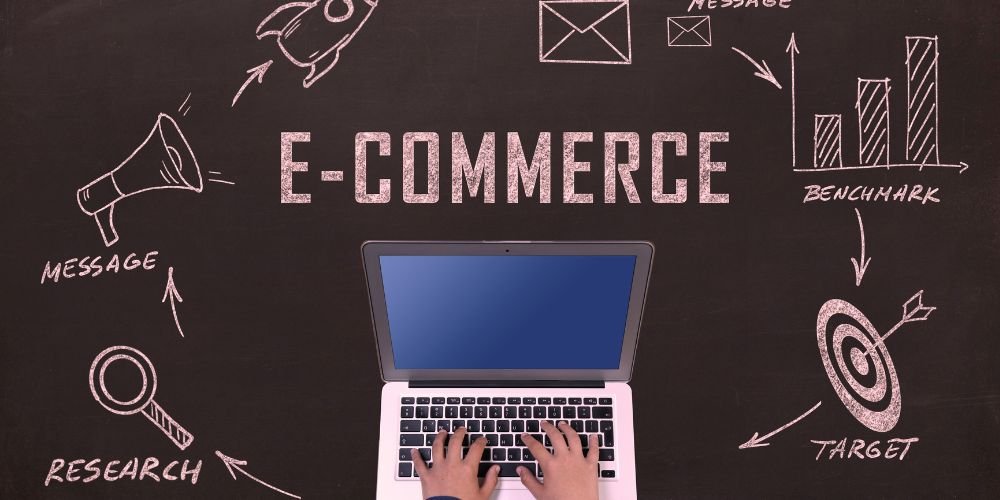Choosing the right e-commerce platform is crucial for any business venturing into the digital marketplace. The platform you select will serve as the backbone of your online store, influencing everything from user experience to scalability and overall business success. This guide will walk you through the essential factors to consider when choosing the best e-commerce platform for your business, ensuring you make an informed decision that aligns with your goals and requirements.
Understanding Your Business Needs
Before exploring the features and functionalities of various e-commerce platforms, it’s important to understand your business needs thoroughly. This foundational step will guide your decision-making process and help you prioritize what matters most for your online store.
Identifying Your Business Model and Target Audience
- Business Model Considerations: Determine whether your business will operate as B2B (business-to-business), B2C (business-to-consumer), or a hybrid model. Different platforms offer varying levels of support for these models, so understanding your business type will help narrow down your options.
- Target Audience Analysis: Identify your target customers and what they expect from an online shopping experience. Consider demographics, purchasing behavior, and preferences. A clear understanding of your audience will help you choose a platform that caters to their needs.
- Product Range and Complexity: Assess the types of products you’ll be selling, their complexity, and any specific requirements such as variants, digital downloads, or subscriptions. Some platforms handle complex product configurations better than others.
Defining Your Budget and Resource Availability
- Budget Planning: Establish a realistic budget for your e-commerce platform, including setup costs, monthly fees, transaction fees, and potential costs for additional features or third-party integrations. Consider both short-term and long-term financial commitments.
- Resource Availability: Evaluate the internal resources required to manage and maintain your e-commerce site. If you have a small team or limited technical expertise, you may prefer a platform that offers more managed services or is easier to use without extensive coding knowledge.
- Scalability Considerations: Plan for future growth. Choose a platform that fits your current needs and has the flexibility and scalability to grow with your business. It can save time and money on future migrations.
Evaluating Key Features of E-commerce Platforms
Different e-commerce platforms offer a variety of features, and it’s important to evaluate these in the context of your specific business needs. Here are the key features to consider.
User-Friendly Interface and Customization Options
- Ease of Use: Look for platforms with intuitive user interfaces that make it easy to manage your online store, including adding products, processing orders, and handling customer inquiries. A user-friendly backend will save time and reduce the learning curve.
- Customization Flexibility: Check whether the platform allows you to customize your store’s design and functionality to match your brand. Consider the availability of templates, themes, and customization tools, as well as the ease of integrating third-party plugins or custom code.
- Mobile Optimization: Ensure the platform offers mobile-responsive designs or the ability to create a seamless shopping experience on mobile devices. With the growing number of mobile shoppers, a mobile-friendly store is essential.
Payment Gateways and Transaction Fees
- Payment Gateway Integration: Evaluate the payment gateways supported by the platform. The platform must integrate with the payment providers you and your customers prefer, such as PayPal, Stripe, or credit card processing.
- Transaction Fees: Be aware of any transaction fees charged by the platform or associated payment gateways. These can impact your profit margins, especially if you’re operating on thin margins or processing a high volume of sales.
- Multi-Currency Support: If you plan to sell internationally, check if the platform supports multiple currencies and localized payment options. This feature can enhance the shopping experience for global customers.
Security and Compliance
- Data Security: Ensure the platform offers robust security features, including SSL certificates, data encryption, and protection against cyber threats. Keeping customer data secure is paramount to maintaining trust and complying with regulations.
- Compliance with Regulations: Verify that the platform complies with relevant regulations, such as the GDPR for handling personal data and PCI DSS for payment security. This is especially important if you operate in regulated industries or regions.
- Fraud Protection: Look for platforms that offer built-in fraud detection and prevention tools. These features can help minimize the risk of fraudulent transactions, protecting your business and customers.
Integration Capabilities and Ecosystem
- Third-Party Integrations: Consider the platform’s ability to integrate with other tools and services essential to your business, such as CRM systems, email marketing software, and accounting tools. A robust integration ecosystem can streamline your operations and improve efficiency.
- App Marketplace: Platforms with rich app marketplaces can provide additional functionality, enabling you to add features as your needs evolve. Look for a marketplace that offers a variety of apps for everything from SEO enhancements to customer service solutions.
- APIs and Developer Tools: If you require extensive customization or plan to develop unique features, check the platform’s API and developer tools. A platform with a strong developer community and accessible APIs can offer greater flexibility and customization potential.
Assessing Platform Performance and Support
The performance of your e-commerce platform and the support available from the provider can significantly impact your store’s success.
Website Performance and Speed
- Load Times: Slow-loading websites can lead to high bounce rates and lost sales. Evaluate the platform’s performance capabilities, including load times and overall speed, to ensure a smooth user experience.
- Scalability and Uptime: Ensure the platform can handle traffic spikes during sales events or marketing campaigns without compromising performance. Check for uptime guarantees and server reliability to minimize downtime risks.
- Content Delivery Network (CDN): Consider platforms that offer integration with CDNs to improve site speed and performance, especially for customers accessing your store from various locations.
Customer Support and Resources
- Support Availability: Look for platforms that offer reliable customer support, including 24/7 assistance via chat, email, or phone. Prompt and effective support can be a lifesaver when you encounter technical issues.
- Self-Help Resources: Evaluate the availability of self-help resources, including tutorials, documentation, forums, and knowledge bases. A comprehensive library of resources can help you troubleshoot problems independently.
- Community and Expert Access: Platforms with active user communities and access to certified experts or consultants can provide additional support, advice, and services to help you get the most out of the platform.
Comparing Popular E-commerce Platforms
To help you make an informed decision, consider comparing popular e-commerce platforms based on the criteria discussed. Here’s a brief overview of some leading options:
Shopify
- Ease of Use: Shopify is known for its user-friendly interface, making it a great choice for beginners and small businesses.
- Customization and Apps: Offers a wide range of customizable themes and an extensive app marketplace, allowing for significant flexibility.
- Cost: While Shopify’s pricing is straightforward, transaction fees can add up, especially if you do not use their proprietary payment gateway.
WooCommerce
- Integration with WordPress: WooCommerce is ideal for businesses already using WordPress, offering seamless integration and extensive customization options.
- Cost-Effective: The core plugin is free, but themes, hosting, and plugins can incur additional costs.
- Scalability: Highly scalable with the right hosting, making it suitable for small and large businesses.
BigCommerce
- Built-In Features: BigCommerce offers a range of built-in features that reduce the need for additional apps or plugins, providing a robust out-of-the-box solution.
- Scalability: Designed to support growing businesses with scalable solutions and strong SEO capabilities.
- Cost: Pricing can be higher than other platforms, especially for advanced features and large-scale operations.
Conclusion
Choosing the best e-commerce platform for your business involves carefully considering your needs, budget, and long-term goals. By understanding your business model, evaluating key features, assessing platform performance, and comparing popular options, you can select a platform that aligns with your vision and supports your growth. Remember, the right e-commerce platform enables transactions and enhances the overall shopping experience, helping you build a successful, sustainable online business.





